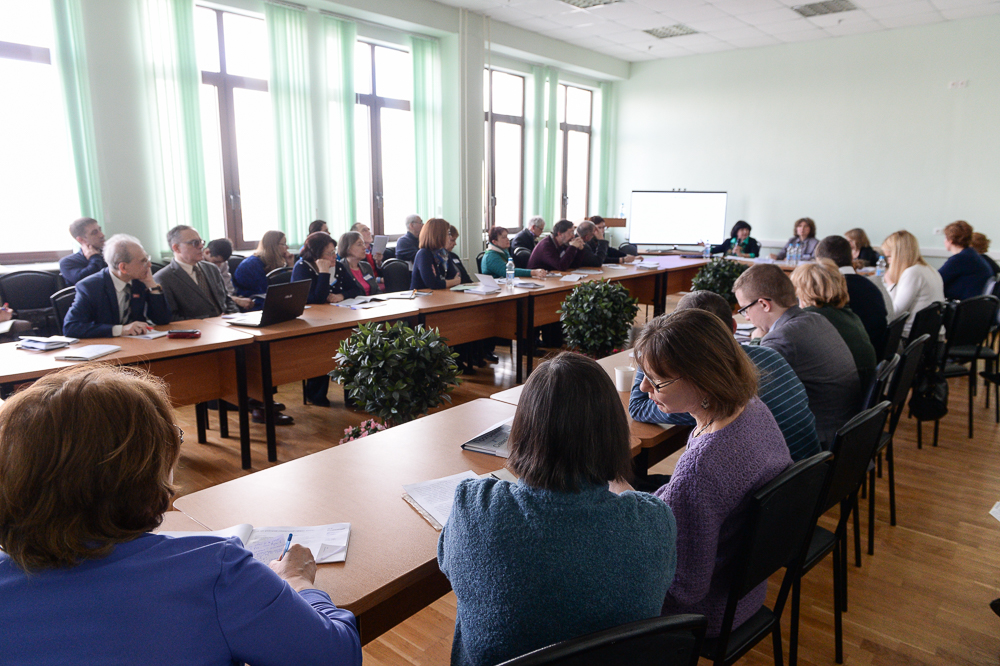
Published: March 30th, 2017
Participants in the MEF 2017 within the framework of the conference "5 years of social sphere reform: education, science, healthcare" spoke about the problems in the social sphere. Who won, and who remained "with nothing" after the reform of budget institutions? What should be the initial postulates of the social doctrine of the state? How did the current radical reform of the social sphere affect the accessibility and quality of education and culture, medical care and social services?
These questions were tried to answer well-known economists, sociologists, philosophers, physicians, teachers, representatives of trade unions in the social sphere and scientific organizations.
In the hall it sounded, but who can evaluate the scientific community for effectiveness? The answer was on the surface - of course, the scientists themselves, not the consumer. "Therefore, when we talk about the development of social sectors, market mechanisms should remain somewhere along the roadside," said Irina Soboleva, head of the Center for Employment Policy and Social and Labor Relations at the Institute of Economics, RAS.
Experts said that to increase the competitiveness of the national economy, and, especially, for the implementation of the necessary leap forward, a fundamentally different, not only an economic strategy, but also a social doctrine is needed. The development of such a doctrine is impossible without analyzing the results of a radical reform of the social sphere that started 5 years ago with the final entry into force of the law No. 83-FZ (reform of budget institutions), the adoption of new laws on education, health protection, etc.
Natalia Grigorieva, Doctor of Political Sciences of the Moscow State University, held a large historical analysis for the presentation in the framework of the section. She showed the results with which social reforms were "coming out" in tsarist Russia, during the times of the Soviet Union. The most unsatisfactory was the experience of social reform in modern Russia. "Since 1995, state funding for medicine has decreased at times, as has the number of medical personnel. The number of beds has also decreased. Plus, the number of paid services has increased, as has their value, which has grown 5-fold over 10 years. " Unfortunately, the expert added, this is the result of a spontaneous policy, without clear planning.
Many experts of the round table were in solidarity that social reform was necessary, but the society, at that moment, was not yet ready for such a turn of events. And if it is not mature enough, the speakers said, the state itself poses problems of reform and the construction of civil society. So it happened five years ago.
The problem of reform implementation was that, in preparing, the state did not include representatives of target groups in the decision-making process, in the course of discussions. According to experts, this is an obligatory factor in the development of any strategic system task: if the problems of orphans are being discussed, then the question should be about the presence of those who are engaged in this problem; If about the Academy of Sciences, then about the community of scientists who works in the Academy of Sciences, in high school science. The maturation of civil society begins to be noticeable with this participation, otherwise it was heard in the hall, without it there are directive, and often short-term, short-term decisions that are constantly changing and lead to a whole series of reforms.
Within the framework of the roundtable, pension reform was recalled, when every person born after 1967 in our state has already experienced three pension reforms. And this category of citizens still does not know how its old age will be ensured.
This low planning horizon, which often creates reform before its tasks are understood, is very damaging and does not help the overall process of development of this or that sphere in Russia. "Reform in many ways continues to be an experimental platform, since there is no answer to the question: what kind of society do we want to build?" - summarized Ph.D. in Philosophy, chief researcher of the Institute of Philosophy of the Russian Academy of Sciences Valentina Fedotova.
The expert Alexandra Zhdanovskaya drew the attention of the audience to the connection of reforms that take place in the sphere of education, healthcare, and the pension sphere with the influence of international financial institutions. In particular, the expert is sure, this is under the pressure of the International Monetary Fund, which requires restrictive fiscal policy, commercialization. This is the impact of the WTO GATS agreement. At the same time, Alexandra Zhdanovskaya stressed the fact that today there is no awareness that the WTO somehow relates in general to a social state.
"My thesis, which I would like to illustrate and show is that GATS and WTO are a rejection of a social state".
According to the researcher, the GATS requires constant liberalization, that is, the constant opening of these areas, areas for access to international business. In fact, social spheres are viewed as markets. However, experience shows that in other countries where commercialization has been carried out, access to public goods will decrease.Latest news
07.05.2018 MEF-2018: debate "Cultural policy: between individual freedom and the interests of society?"
07.05.2018 MEF-2018: Conference No. 8
07.05.2018 MEF-2018: Conference No. 4
07.05.2018 MEF-2018: Conference No.3
07.05.2018 MEF-2018: Conference No. 2
07.05.2018 MEF-2018: Conference No.1
26.04.2018 McConnell Discusses Information Warfare
20.04.2018 MEF-2018: closing plenary session
17.04.2018 Mr. Freysinger: «Skripal’s case» for relationship between Russia und European Union?
